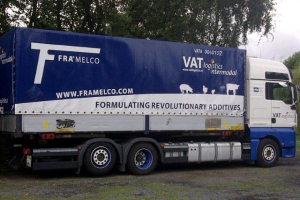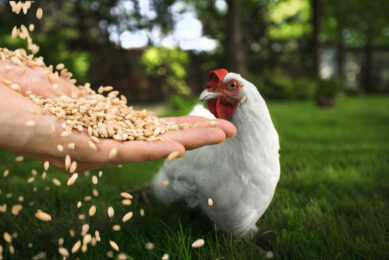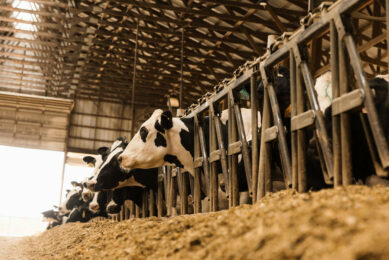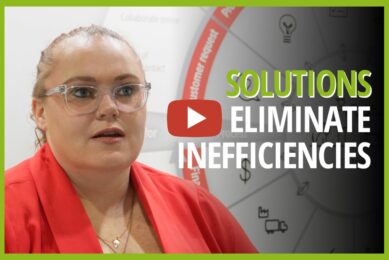Framelco hosts symposium focusing on gut health

A seminar by animal health company Framelco held in Kaatsheuvel, the Netherlands, zoomed in on gut health in pigs and poultry. Focusing on gut health; enzymes; and encapsulation and nanotechnology. The company highlighted the possible solutions in these fields.
The international event was held as part of a series of events, as the company celebrated it’s 35th birthday. The event was attended by about 150 people and hosted by Lars Snijders, company vice president of Framelco.
The symposium zoomed in on three different aspects of gut health: Intestinal health; enzymes; and encapsulation and nanotechnology. In all three sections, experts from the field were invited to give an update, after which the company highlighted its solutions in these fields.
Intestinal health
Prof Dr Richard Ducatelle, University of Ghent, Belgium, zoomed in on intestinal health and the role of butyrate. He mainly gave examples from the poultry industry. He reminded his audience of ‘dysbacteriosis’ – the phenomenon that feed is not digested when certain antimicrobial growth promoters (AGPs) are not given to animals.
He continued to say that antibiotics don’t kill all bacteria – but they can cause a shift in bacteria composition in the animal’s gut. He then moved on to explain the role of butyrate in intestinal cell walls, blocking inflammation.
In a panel discussion, professor Dik Mevius, head of the Dutch National Reference Laboratory on Antimicrobial Resistance in Animals, stated that not only antibiotic use in animals should be addressed to tackle the problem of resistance, but also that in humans.
Enzymes
Prof Dr Laszlo Babinsky, from the University of Debrecen, Hungary, kicked off the second session and introduced the theme of enzymes.
He was followed by Balazs Vagi, Framelco, who explained the company’s product Fra Multizyme MS/MSC for monogastrics, which is in the process of being registered for use in the European Union. “We chose for a multizyme product so it can be active on a wide range of substrates,” he said.
Encapsulation & nanotechnology
How encapsulation and nano- technology can benefit the animals was clearly explained by Kees Geerse, nutritionist, F2Care, the Netherlands. Encapsulation could be used for masking strong odours and flavours, and thus enhancing palatability he said.
Other reasons can be guaranteeing content during processing and storage; targeting delivery in specific sites of the GI tract; increasing bioavailability and product consistency.
With nano particles, the efficacy of feed additives can be further enhanced – and he used recent research on ZnO NP as an example.
Other speakers included Dr Helder Pinto, Framelco; and Pedro Parres, Framelco.











